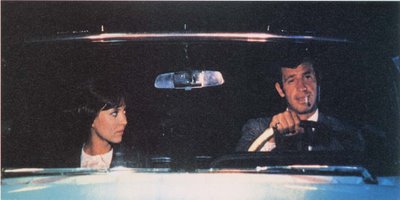"Researchers estimated that as a result of the war, about 655,000 people in a country of about 27 million have died above the number expected to have died without war, Bernham said. that means 2.5 percent of the Iraqi population has died because of the invasion and ensuing strife, he said.
At a White House news conference Bush said, "I don't consider it a credible report. Neither does General (George) Casey (top U.S. commander in Iraq) and neither do Iraqi officials."
Casey, at a separate Pentagon briefing, said he had not seen the study but the 650,000 number "seems way, way beyond any number that I have seen. I've not seen a number higher than 50,000. And so I don't give it that much credibility at all."
Bush said, "I do know that a lot of innocent people have died, and that troubles me. And it grieves me." But he called the study's methodology "pretty well discredited." Last December, Bush estimated 30,000 Iraqis had died in the war.
Iraqi government spokesman Ali al-Dabbagh told Reuters, "The report is unbelievable. These numbers are exaggerated and not precise." Iraqi government officials put the total Iraqi death toll since the war started at 40,000."
--"Study sees 655,000 Iraqi war deaths; Bush disputes" (Reuters, 11 October 2006)
A slow conversation between Ferdinand and Marianne in a car. Ferdinand, with a cigarette hanging from his mouth, is calmly driving. It is night. We know they're in the city because of the colored lights that repetively flash over the windshield. A line from the radio breaks the silence:
Radio: Garrison massacred by the Viet Cong who lost 115 men.
Marianne: Awful, isn't it? So anonymous...
Fernindand: What is?
Marianne: They say "115 guerrillas" and it doesn't mean a thing to us.
[Pause]
Marianne: Yet each one is a man, and we don't even know who he is. We don't know if he loves his wife, if he has kids, if he prefers movies or plays. We don't know anything. All they say is "115 killed." It's like photographs. They've always fascinated me. You see a snapshot of a guy with a caption underneath. He was a coward maybe, or a nice guy. But at the time when it was taken no one can say exactly when he was thinking about. His wife? His mistress? The past? The future? A basketball game? Nobody will ever know.
Ferdinand: That's life for you.
Marianne: Yes...that's what makes me sad: life is so different from books. I wish it were the same: clear logical organized... Only it isn't.
Ferdinand: Yes it is... a lot more than people think.
Marianne: No, it isn't, Pierrot.
[Pause.]
Ferdinand: My name's Ferdinand.
-- Pierrot le fou, 1965, director Jean-Luc Godard.





